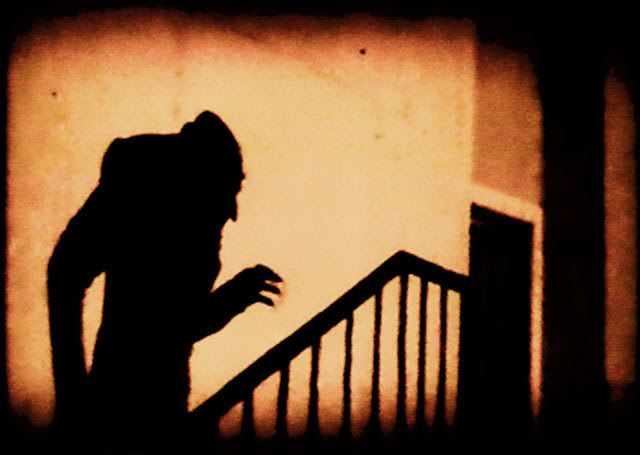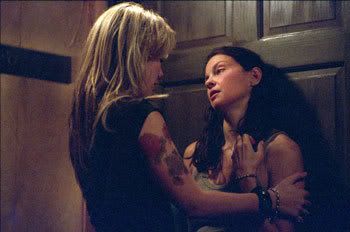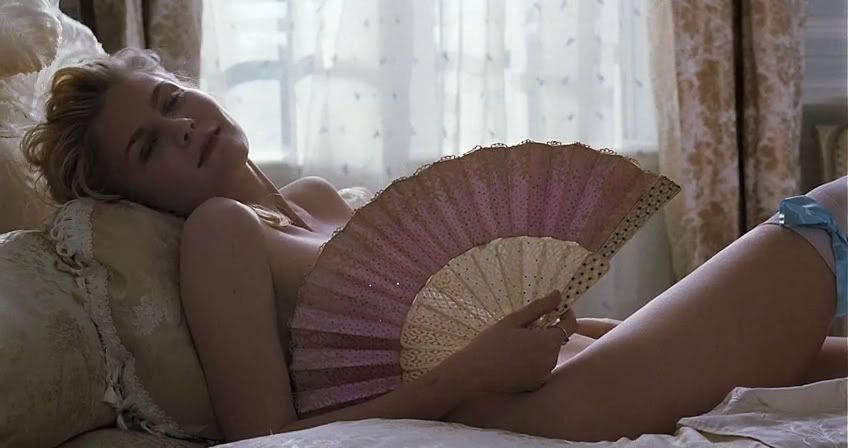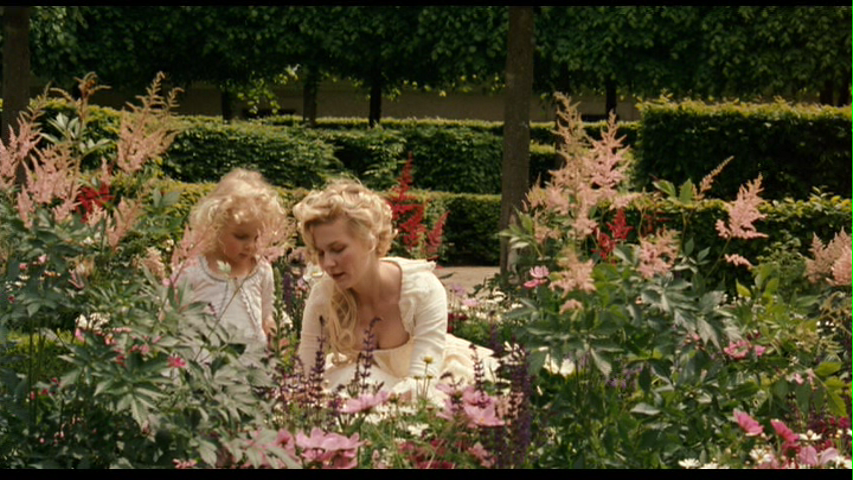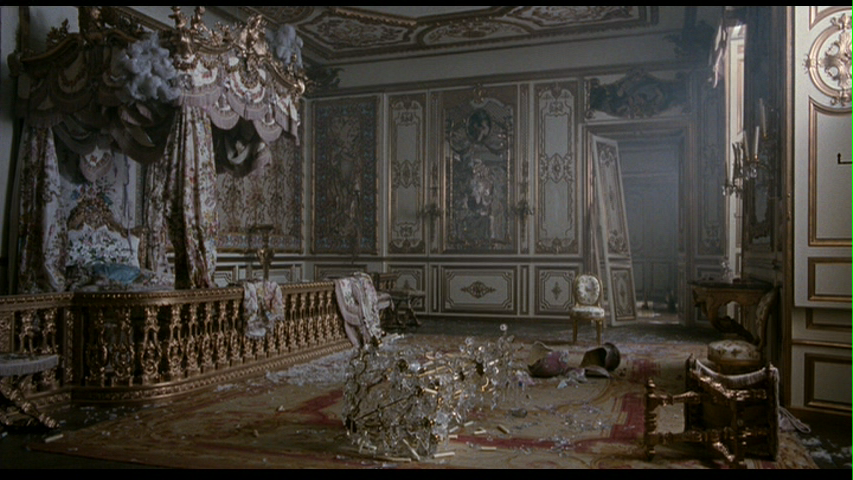I hold in my heart an unquenchable love of
Veronica Mars, Rob Thomas' aborted femme-noir brainchild. It had a valiant two season run on UPN, where it received undeservedly low viewership, before the CW picked it up for a third and final season. The show has a devoted cult following, because it is perceptive, enthralling and incisively funny; why it did not perform better is completely beyond me.
At the backbone of Veronica Mars is its characters, a sordid cast of miscreants. Most are superb models of the human condition, written with insight and originality, but as with any show, a few are not. I took it upon myself, then, to deliver my (HIGHLY SUBJECTIVE) list of which characters are better than others. I haven't found many lists like these around the Internet, so as any bigmouthed blogger must do, I decided to offer my two cents.
Note that this list has a noticeable skew toward a character's showing in Season 2, versus in Season 1, simply because 2 is the season I most recently watched. I have not yet seen Season 3 and am told by several people not to, though I suppose I owe it to myself to be a good fan. And note that this list contains
spoilers for both seasons.
Without further ado...
16) Dick Casablancas
Deciding which of the Casablancas progeny I wanted to put in the dead last spot was a pretty brutal internal war. Dick here finally won out, simply by virtue of actively poisoning the entire season versus Beaver creeping in at the very last episode and trashing most of the greatness we've already seen. Dick Casablancas has absolutely no reason for being anything more than the interchangeable guest character he was in Season 1, but for some twisted reason he makes himself more obnoxious in Season 2. Thematically, he only seems to reinforce the fact that - ready for this one? - the 09ers are assholes. Whoa, really? Wasn't sure about that one. His dialogue is stupid without a trace of ironic cleverness to it, and again, he serves no purpose in the season arc.
I think a little IMDB trivia clears up this mystery for us:
Rob Thomas, the creator of "Veronica Mars," says on the season 3 DVD extras that Ryan Hansen's character Dick Casablancas was not originally meant to be a series regular. He was first cast for the pilot, as a nameless, rich Neptune resident with one line ("Logan!"). Thomas said that they read many young actors for the line, and when it came down to a choice between Hansen or another actor, they cast Hansen purely because he had "good hair."It's not that
Ryan Hansen is particularly terrible in the role; it's just very poorly written and offers him few chances to flourish. He is obviously just a marginally attractive actor thrown in to provide the show with a spot of new eye candy. Too bad.
15) Cassidy "Beaver" Casablancas
While I selected the above picture of Dick to highlight his attractiveness, thus explaining his sole reason to be on the show, I intentionally picked the worst picture of Beaver I could because I am bitter about how he fucked up the ending. In Season 2's first twenty-one episodes, Beaver is tolerable background noise - at times, he's clever and even interesting. Ignored and wilting in the shadow of his older brother, he is a perpetually sad presence on the show. His relationship with Mac is cute and actually loans Dick a brief bit of interesting exposition. And then comes the fatal mistake - the show reveals him to be the Big Bad of the season.
He killed a busful of teenagers specifically to get at two of them, sets up a bunch of innocent people to cover his tracks, blackmails the mayor into killing the incorporation plan, puts a bomb in the mayor's car AND his plane and succeeds in blowing up at least one of them in an attempt to kill not only him but also Veronica's dad, and then tries to kill Veronica and Logan. And this is JUST BECAUSE he got molested and was awkward about it. Far be it from me to belittle molestation, but there are about 50 subplots running through the show that hold more gravitas than a one-shot personal trauma. Gang wars? Political plots? Nope, Beav claimed over ten lives simply because he got touched at a Little League game a decade ago. In no way does the show justify the actions he takes throughout the season.
If this all isn't enough, his character makes a sudden 180 in the last episode, turning into a raving mastermind, bereft of any of the vulnerability that colored him throughout the season. The show desperately plays the sociopath angle, but it all feels like a sloppily constructed excuse.
Perhaps the most insulting thing of all, however, is that he's ALSO revealed to have raped Veronica back in Season 1. Gone, then, is the thoughtful moral gray area that was created last season, when a girl's life had been made a living hell and no one was truly accountable for it. Instead is just an offensively bad heap of exposition written in just to make this character seem more fucked up and evil.
Poorly played, Rob Thomas.
14) Leo D'Amato
Leo isn't particularly complex or important in either season - he appears in eleven episodes, eighteen less episodes than Deputy Sacks, but I opted to include him instead. Why? Well, for one, I don't think that poor bastard Sacks got to do ANYTHING interesting through the course of the show. And for another, Leo did have his uses, though they're primarily relegated to Season 1. He proved that not everyone in the Sheriff's Department is an incompetent, cruel bastard, and did a decent job filling the void between Veronica's relationships with Duncan and Logan. Sadly, the show was concerned with more important things than him, and he vanished midway through the second season after a couple of forgettable guest spots.
13) Gia Goodman
Gia has even fewer episodes than Leo, at a whopping eight, so I'm just going to admit right now that I included her mostly because I want to talk about how weird she is. She looks weird and acts weird, and her character is written with no reason or rhyme, almost like some wildcard for Rob Thomas to use when he needs to move the plot or certain characters in Mayor-related directions.
That said, Gia does bring some unique things to the show. She plays a character who is both intelligent and yet oddly vacant at the same time. Think Cordelia Chase, only oblivious instead of self-centered, and not nearly as layered. She's a very edgy presence and scenes always seem to move a little faster when she's in them. It's an odd effect, really. I'd have like to seen her in the final episode in some capacity, but I guess they were too busy raping the whole season to find a place for her.
12) Kendall Casablancas
This is seriously the best they could find for
Charisma Carpenter? A MILFy gold digger with a crime-tinged past. Yawn. Next!
11) Duncan Kane
Duncan is surely the most important low-ranked character on this list, but I've just never found any reason to get attached to him. I think that, more than anyone else below him, it's an acting-related problem. Duncan is surrounded by characters that are far more interesting than him, but the fact is that
Teddy Dunn is simply not very good in this role. He is vacant and unthreatening, not even close to the untapped powder keg that the show tries to paint him as. Other characters who know about his condition speak of him as a berserk, almost Hulk-ish figure if he has an attack, but there's maybe one scene where he emotes to this point. That's the scene where Veronica confronts him about their possibly being related; it's no wonder that this is the most memorable scene he gets in the series. Most of the time, though, you just want to give him a big hug and some warm milk and a blanket.
There also exists the problem of chemistry. As a potential lover to Veronica Mars, he pales in every way possible compared to Logan. Be it comic interplay or actual romance, Duncan just can't keep up with her quickness, her strength or her vulnerability. Even when he's with her, he feels absent and inadequate. I don't know if his bizarre disappearance halfway into Season 2 is indicative of this perceived lack of chemistry or even poor fan response (many people, as I've gathered, feel similar about this pairing), but he leaves at a very opportune time for Logan to take the reins again.
By no means is Duncan truly "bad." He gets plenty of interesting things to do near the end of Season 1, though I honestly can't remember what he spent the first 80% of it doing, and his showing in Season 2 is incredibly blank. His relationship with Meg is really hard to care about, save for the internal strife it causes in Veronica, and I still can't get over the fact that the writers chose to get rid of him by having him
kidnap her coma baby. Of a show that is generally graceful in its stretching of credibility, this may well have been a snapping point.
10) Meg Manning
This is a horrible picture, but I couldn't miss the opportunity to show off Sassy Hospital Bed Meg. Anyway, most of Meg's placing here is because she left an impact on me, despite not having much place in the series overall. She's only in ten episodes, five in each season, and her greatest ultimate purpose was getting Duncan off the show.
Alona Tal is absolutely luminous, for one, and I could totally believe that Duncan would choose to fill the gaps that Veronica left in his heart with her. She creates a unique dynamic for Veronica, as a female 09er who could be a potential ally, but later as a sparring partner over Duncan's affections. This latter relationship was involving to me simply because I thought Meg was too likable for Veronica to fight with for too long. When she tumbles over the side of the cliff in the ill-fated Death Bus, Veronica's anguish at not being able to reconcile with Meg hits hard.
Of course, she gets the chance in the one scene where Meg regains consciousness, tying this loose end neatly. It's kind of a shame that Meg dies so arbitrarily, obviously as a conduit for Duncan to steal her newborn baby and leave...the whole scenario smacks of "these actors have other commitments and we need to get them off the show." She's not the best character on the show by any means, but she's the best of the supporting ones.
Meg also gets bonus points for setting up Nobody Puts Baby in a Corner, the creepiest episode in the entire series, and one of the most interesting subplots that season - one that, sadly, died in the water with little relevance to the actual arc.
9) Eli "Weevil" Navarro
Weevil's position on the morality scale is the most interesting thing about him. He's a gangster with a heart of gold, right? No, not really...for the most part, he's a bastard with a you-scratch-my-back-I'll-scratch-yours view on life. He's really only close to Veronica because they've had to help each other in the past. Weevil has far more important things on his mind than altruism, primarily surviving the ravages of douchey 09ers and the cruel grip of being poor in Neptune. He does a great job illustrating the class divide and what the less fortunate of the city have to do to make ends meet.
It's just a shame that they never find anything important for this character to actually do. He only ever gets to play Plot Device, the figurehead in the PCH's gang war against the Fighting Fitzpatricks that Veronica can safely extract information from. I don't even remember what he does in Season 1, but by looking at his ultimate irrelevance to the mystery at large, it can't have been very important. He as an actual person is little more than a gangster caricature: loyal to family and his crew, with a middle finger to the rest of the world.
8) Aaron Echolls
Aaron Echolls is a through-and-through creep. He lived a young life full of abuse, and as many abuse stories sadly end up, perpetuated that abuse with his own family. The single most painful, powerful scene in Season 1 is when Logan essentially forces his dad to donate half a million dollars to a homeless shelter to prove what a philanthropist he is...a cheeky trick that Aaron rewards by beating Logan with a belt once they get home. This scene represents a massive turnaround for both characters, immediately deepening Logan past the frat boy lothario he starts as and setting up Aaron as a major antagonist.
Aaron is obviously significant because he's the first season culprit. As insidious as he is, he really could have used more screen time - he only gets eight episodes in a season where he is the murderer. (Then again, Beaver got twelve and it sure as fuck didn't help him.) When Veronica finally takes Aaron down, it's a feeling of immense excitement. And he continues to contribute to the show when he gets acquitted in the second season, which should fill any sensible viewer with bilious rage. The hierarchy of justice in Neptune is that blind and unfair so as to let this incontrovertibly despicable man walk free? It represents a sort of boiling point for the caste tensions in the city. Sadly, this potentially interesting plot thread is again thrust to the wayside by the second season's idiotic scrambling for a resolution, and Aaron is swiftly dispatched by a hit that Duncan puts out. It's not the most satisfying end for the character, but it still merits a "good riddance."
7) Wallace Fennel
I am so disappointed with second-season Wallace. He just has nothing to do except spit one-liners from time to time and go after Jackie. He doesn't even get to steal files for Veronica anymore. This season really neuters his character, despite initial attempts to flesh out his backstory with a "look! your real father!" subplot. Unfortunately, like several others in this season, it goes absolutely nowhere and seems to only exist to whisk Wallace away for a few episodes while
Percy Daggs took a break or something.
Season 1 Wallace is great. The crux of Season 2 Wallace's development is, again, his relationship with Jackie. This works out far better for her than it does for him for several reasons. Wallace shows an uncharacteristic lack of discretion in pursuing her, ignoring the fact that she's kind of a slutty bitch. At his lowest, he tells Veronica to "let it slide" after Jackie sets her up for massive school-wide humiliation (though to be fair to him, he bitches out Jackie for it immediately after). His six-episode exodus is soon after, though once he gets back he starts chasing Jackie around again. Wallace's relationship with Jackie obviously didn't go on long before it disintegrated, and it just doesn't make sense that he would be obsessed with her at the level he is, especially after how she's treated his best friend. I have a lot of trouble with the continuity of his character here.
Still, he's a welcome presence on the show and never contributes anything truly negative, even at his lowest points. The show sorely needs a comic relief character who is not an idiot and/or a tool. It's just sad that he got so shafted in the second season.
6) Jackie Cook
It always amazes me how deftly Veronica Mars can play with your perceptions of a character. Jackie Cook starts out, to put it bluntly, as a detestable cunt. She is impatient, catty, and obviously written into the show as a conduit for drama and a love interest for Wallace; she does not make a good first impression. With her incessant on-guard rudeness and her frigid demeanor, she's all bark and no bite. That's not to say that she doesn't make for good drama, however, and Veronica plays on the defensive very well, both for Wallace's sake and her own. It's about time that she had another hard-lined female to clash with.
The show makes it clear that she's just using Wallace for a little arm candy, seeing a few of her much-loved "bad boys" on the side. After Wallace leaves, Jackie vanishes from the show in turn. As soon as he returns, she does, and on that very same episode her father becomes the prime suspect for the bus incident. This spurs an interesting change in her character - she becomes universally loathed by the students of Neptune High, something that she apparently couldn't manage while acting like a total bitch. So to try and salvage a little bit of dignity, she suddenly makes an attempt to become a straight-laced, generally good person. She takes the bullied geek to prom, gets a job to support the family while their assets are frozen, and even acts totally cordial to Veronica. This turn of character is jarring and struck me as a bit out of place at first, but if you give it some thought, it makes perfect sense. Jackie clearly just wants attention, but when she gets plenty of the negative kind, she realizes it's not worth the effort to get people to hate you. But what does she know about attention? Her parents never gave it to her, we know that much. The only solution for her now is to try and be nice, which comes too late for most to appreciate.
I was really impressed with
Tessa Thompson's ability to pull off this potentially awkward shift. The character is complex and a little bit confused, but never unbelievable. Kudos to her.
5) Don Lamb
Don Lamb is a hyper-douche. Frustrating as fuck to watch on basically every level. So why is he ranked so high? Simple - he is one of the primary sources of friction and conflict for Veronica in the show. Without him, she'd be working hand in hand with the police department and everything would get solved in the blink of an eye.
Michael Muhney plays him dripping with devious venom, but never to the point of caricature. You understand that this man has an enormous ego and a major power complex, but he's not a symbol, just a human being with a lot of obvious unresolved issues. We get the tiniest glimpses into a possibly troubled past with Nobody Puts Baby in a Corner, where he sets Veronica and Duncan free after they break into an abusive family's house (heavily implying that he was a sufferer of abuse). We learn that he's a college dropout after blowing his knee and losing a scholarship; if that isn't a recipe for insecurity, I don't know what is. But Lamb never, ever invites your sympathies. He has no vulnerable moments, no softening of his general assholery, and no figurative redemption. He's just a pretty awful person who lucked into a civil service career, another cog in the fucked up gears of Neptune's government.
The man is also a total fox, by the way. I hear he dies a pointless death in Season 3...disappointing.
4) Cindy "Mac" Mackenzie
I'm biased. Mac never really accomplishes anything throughout either season, except for being Veronica's go-to girl in case of technological need. She manages to make Beaver interesting, and her relationship with him is an experience that many of us can relate to: the sting of not feeling adequate for a partner. By this regard, she is totally heartbreaking in the last episode. She has two or three scenes at most, but they're enough to give us one tiny glimmer of honesty and reality found in the fucking idiotic events of the previous ten minutes.
Aside from that, she's up here because she's fucking cute. Seeing her on the show is a promise of a good time. It just makes me happy that Veronica keeps a friend like her around, dowdy and cynical but genuinely good-hearted. I like how Dick calls her "Ghost World." Come on, if she can enrich Dick, then she must be a keeper of a character...though I'd eat my hat if Rob Thomas wants us to believe that Dick has seen Ghost World.
3) Keith Mars
Keith Mars is a guarded man. We never get much out of him in terms of backstory, but it doesn't matter. All we really need to know is how much he loves his daughter. He does not allow his personal issues to crack his professionalism, like his troubled wife's abandonment or when he blows it with his new girlfriend; the viewer is invited to fill in the blanks with his reactions, sated on bits of subtle reaction. The show never dwells on his romantic problems. But if you fuck with Veronica you'll get him in full force. He is a presence of inimitable solace on the show, someone who both Veronica and the viewer can come back to in troubled times. It is legitimately scary when she tries to take steps outside his boundaries, breaking his trust and putting herself in places where he can't protect her.
His character is by no means the most complex in the series, but he makes himself known. He has the most presence of anyone else there. In a show with so many larger than life figures, that is a major compliment.
And let it be known: Keith and Veronica Mars are the best father/daughter pairing in television history. Bar none. I dare anyone to come up with anyone else.
2) Logan Echolls
Remember what I said about Jackie? How Veronica Mars plays with your sentiments endlessly, making you love and hate and love and hate characters until you just don't know where you stand anymore? Welcome to Logan Echolls. It would do him injustice to nail down every single incident that changes a viewer's perspective on him, so I'll just leave it at this: he is the single most complex character on the show, one who will break your and Veronica's heart and then stitch them back together, one fighting off a lifetime of internal demons the best ways he's been taught.
A great amount of the character's success comes from
Jason Dohring, who gives one of the most consistent performances on the show. Meticulously attentive to the continuity of the character, he doesn't let an action go by without appropriate justification, be it external or otherwise. He has about fifty times the amount of memorable moments that Duncan does, and the effect that he has on the show is palpable even when he's not in the frame. That's how you make a character, ladies and gentlemen.
1) Veronica Mars
What can I say? She is the show.
Kristen Bell is quite simply flawless and I think it is criminal that she didn't pick up an Emmy for this. You dream it, she can do it - she pulls off the witty one-liners, the absurdist humor, the brokenhearted gaze of a scorned lover, the concerned daughter, the spy, the potential murder victim, the grieving friend...anything and everything. She is pitch-perfect with everything that is asked of her. She could probably grow wings on command if asked. It's a shame that this show went relatively unnoticed, because this character deserves to go down in the TV hall of fame. Veronica Mars is an icon. She is a reminder that women can be funny, charming, powerful and resourceful without any need to kowtow to their sexuality. If you've already seen the show, you have known the charms of Veronica Mars, the depth of her character and the irresistible magnetism that keeps you glued to your television.


















